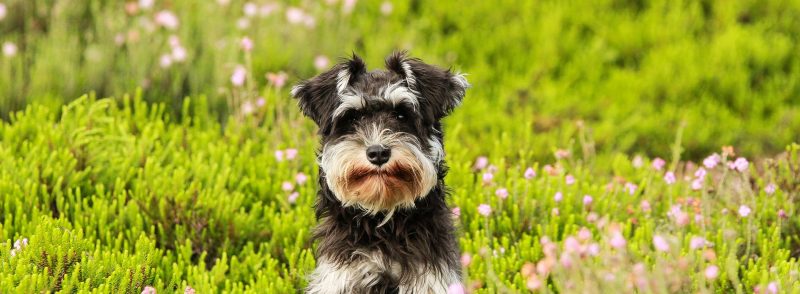Spring Dilemmas 2021
SPRING HAS FINALLY ARRIVED
Finally Spring has arrived to brighten us up in all this Covid despair. A year like no other again after we thought nothing could top 2020!
Winter is always a dreary time for pets and owners alike but this year made worse by the shadow of Covid albeit we have got off lightly in WA (at least for now). We also had the wettest July on record as well just to add to our miseries.
So….Spring will be a welcome relief for many people and not the least being our pets that become quite depressed when their walks at the park are curtailed not to mention the anxieties that rain and particularly thunder create!
Cats equally stay inside by the fire and the activity rate of everyone in the household drops as the humans watch sport on TV as a blessed respite from the bad news, and our pets tend to be neglected.
As the weather warms not only do pets and their owners come out of hibernation but parasites, snakes and other nasties also become more active. In Perth our temperate climate means we should never let our guard down against parasites external and internal but many people do and the compliance rate of monthly preventives can be as low as 5/12 months a year which means a burst of warm weather in winter can spell disaster if heartworm preventives and other parasite control have lapsed. Fear not as we now have some excellent medications that can be given every 3 months such as Bravecto, and the spot on form of Bravecto that lasts for 6 months so these can be used all through the Winter and like all oral medications these reach back rather than forward in control.
1. Heartworm:
I fear that vigilance has fallen off alarmingly with heartworm control since the disease was first discovered in Perth based canines some 30 years ago. Control is easy and I favour the annual injection which can be given at the same time as annual vaccinations. The injection is made of sphericles that are dissolved gradually from the site of the injection over the next 12 months giving good control. Heartworm prevention is also available in monthly and three monthly oral medications and remember we have the right temperatures, the right mosquitoes and bodies of water such as lakes and the river for the disease to be ever present. The only factor that saves us is that the majority of dogs are protected as the disease requires an infected dog population to be propagated. This I fear is falling off and we are in danger of cases reoccurring in Perth once again. Ask your vet!
2. Intestinal worms:
From a human health point of view control of internal parasites is important and this is easily done with the plethora of products on the market given monthly, three monthly and either individually or in combination with other preventives so again ask your vet!
3. External parasites:
These ramp up as the weather becomes warmer and fleas head the list but ticks and lice are also prevalent and easily prevented.
4. Flies:
A major problem in areas such as horse studs but also seen in suburbia around rubbish bins and outside/backyard areas particularly if food is left uneaten, if there is compost around or if faeces from the family pet are not cleaned up regularly…. bag this as soon as you see it and keep a special bin that can be put out for collection or deposited in the special bins provided at most parks and recreation reserves. The use of pyrethrin sprays in the back yard, aerosols such as Ndem on the pet and topical ointments on prime areas of your pet such as their ears all help to reduce this annoying problem.
5. Bees:
A major problem all year round particularly for susceptible animals here, stings can cause anaphalaxis in pets and people. Watch out for that sudden yelp and lameness or grossly swollen face during a walk at the park as they (bees) are often lying on the ground….a visit to the local vet may well save a life and if your pet (or child?) are susceptible the consequences become worse after each encounter and desensitisation may well be necessary.
6. Birds:
We are so lucky in Perth having an abundance of bird life in the suburbs to enhance the beauty of our gardens and recreation areas, but beware the territorial species such as magpies, butcher birds and honey eaters which delight in dive bombing both people and pets during the mating season in Spring. A hat is a must and I also carry an umbrella as they can draw blood or worse as they dive bomb intruders into their breeding areas!
7. Equally give birds a chance in your garden by ensuring the family cat is wearing a bell as these fire side tabbies during the winter turn into efficient killing machines as they creep up and mesmerise birds and their young, just doing what comes naturally but very distressing when it happens
8. And on the subjects of cats, please keep them inside from dusk as they are busy meeting and mating during Spring (those that are not sterilised…as they all should be!) and the ensuing fights throughout the night can keep the neighbourhood awake as they scream at each other, locked in mortal territorial battle.
9. Noxious Plants:
When planning your garden please get advice regarding the species you should plant. There are a plethora of noxious plants in every garden and this is a topic about which most pet experts have only a sketchy knowledge. Planting native species will ensure your garden is full of birds, frogs and other marvellous creatures.
10. On the topic of “house and garden” and before you get too enthused as Spring starts to bloom, care must always be taken when using snail baits, lawn fertilisers and other caustics outdoors. Frogs and reptiles (avoid snakes!) are greatly affected by these agents and snail bait can be very toxic to dogs as they attract dogs and should be used sparingly (follow the directions!) and preferably put in wide necked jars and conduit pegged to the ground as the products will attract snails. Try to use animal friendly products at all times and don’t leave stocks of nitrogenous fertilisers and snail bait in reach of inquisitive pets.
11. At the Park:
After a long wet winter your dogs will be overjoyed to once again have that daily romp in the park, chasing balls and Frisbees and meeting their cohorts. Beware of squabbles that may occur between focussed individuals that become obsessive about their own balls and tug toys as this can cause mayhem, injury and bad feelings amongst owners! Ensure your dog has been properly socialised at puppy and obedience classes so they become good citizens and learn to share, recall and generally follow your instruction to the letter! Severe fines and worse can ensue if they transgress on a regular basis.
12. Travelling in the car:
Please ensure you secure your dog just as we must do. There are some handy harnesses that clip into seat belt anchor points to prevent your best friend from injury when you are forced to stop suddenly, not to mention the damage they can cause flying around the car! Car sickness is also a problem in many dogs and this can be reduced by regular trips to desensitise them but also how and where they travel in the car. It is a combination of motion sickness (try putting them on the floor behind the front seats) but also anxiety due to fear so medications may also help initially to familiarise them with car travel. Most dogs get to love travelling in the car and being with their people.
13. On the subject of cars and we talk about this constantly, please do not leave dogs or any animals for that matter unattended at any time in a locked car. Heat stroke can occur within 6 minutes even in temperatures as low as 25C. Spring is a critical time as the temperatures can climb higher than you think!
14. The sun’s heat particularly in the middle of the day can be detrimental in white cats particularly with sunburnt ears and noses and also white staffies and boxers. Consistent sunburn can lead to squamous cell carcinomas in dogs and cats so be sure to protect them from this. There are some good screening lotions available for pets though of not much value in cats.
15. The beach is back on the agenda in Spring so watch out for blowfish (beach and river) as these can be very toxic and also errant anglers who leave fish heads and gangs of hooks on the beach leading to these being caught in mouths and worse.
16. Throwing sticks for dogs at the beach is an absolute no no. Some dogs are incredibly quick catching them in the air and as they land pouncing on them with such ferocity that the sticks can be driven deep into their throats. Please use frizzbies to exercise them and not balls either as I have seen these caught deep in their throats, particularly squash balls which can also damage eyes as they fit neatly into eye sockets. Backyard cricket is best played with a tennis ball as cricket balls can break windows (!) but also teeth and limbs!
17. Swimming is great fun but the water can exacerbate ear problems so speak to your vet about a management plan for chronic swimmer ear!
18. Some dogs also swallow water at the beach when jumping through waves and biting at the foam. This leads to vomiting in the car on the way home so give them time to settle down before that long trip home.
19. Also remember older dogs and the family pool can be a lethal combination with tragic circumstances when they can’t get out. If you go out, and at all times anyway, keep the pool gate firmly shut.
20. Barbecues can be a problem because of that hot plate taken off to drain the fat and meat products. Very inviting but desperately hot and not good for eager tongues! Just like those hot bitumen roads on bare pads.
21. Beware also that guests do not casually drop or feed the dog at the BBQ party. Offcuts of fat and particularly onions can be very toxic with the latter causing anaemia in susceptible animals.
22. Reptiles:
Beware of snakes in the Spring. They come out of hibernation full of venom and are a constant problem. Dugites in the sand dunes and inland and tigers around lakes and rivers must be avoided at all costs. Keep your dog on the path and trained to recall under all circumstances. It is best to walk in the early morning rather than the heat of the day to avoid any unpleasant surprises.
The list of issues we encounter with our pets in the Spring is endless but is also a special time, beautiful in most respects but there can be a sinister side for our pets.
Tony Vigano



